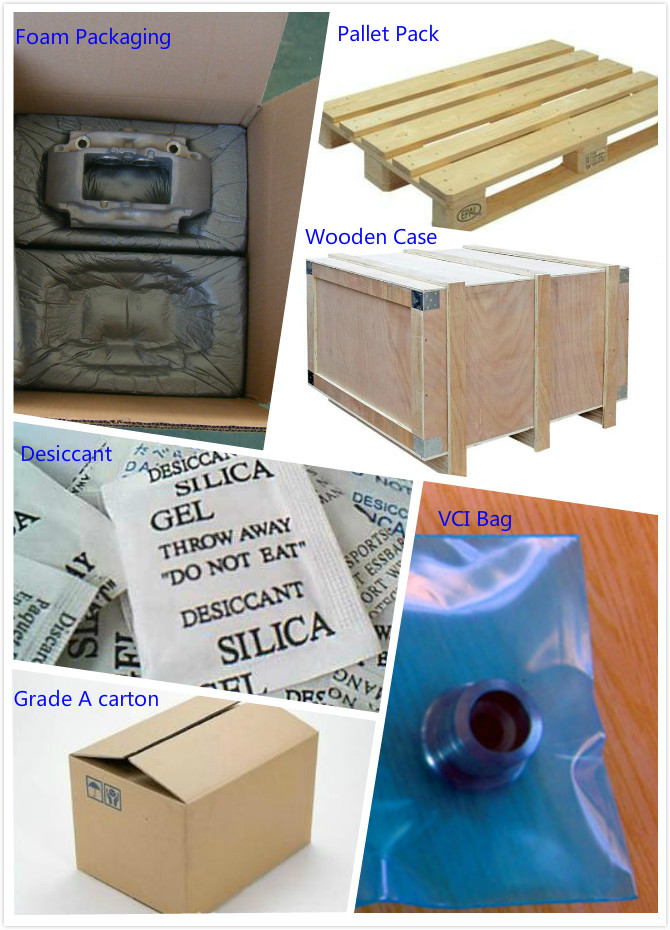![stainless steel machining stainless steel machining]()
Austenitic stainless steel
303 stainless steel is an austenitic stainless steel with good workability and corrosion resistance . It contains sulfur, which allows it to produce smaller, more manageable chips during machining, which improves processing efficiency and tool life. However, the addition of sulfur also slightly reduces the corrosion resistance and toughness of 303 stainless steel, making it slightly worse than 304 stainless steel in terms of corrosion resistance.
Chemical composition
The main chemical components of 303 stainless steel include:
Carbon (C) : ≤0.15%
Silicon (Si) : ≤1.00%
Manganese (Mn) : ≤2.00%
Phosphorus (P) : ≤0.20%
Sulfur (S) : ≥0.15%
Chromium (Cr) : 17.00-19.00%
Nickel (Ni) : 8.00-10.00%
Molybdenum (Mo) : ≤0.60%
Product Advantages of Stainless Steel CNC Precision Machined Fittings:
Superior Material Performance:
303 Stainless Steel: Renowned for its excellent machinability, corrosion resistance, and mechanical strength, 303 stainless steel ensures long-term durability in harsh environments (e.g., exposure to chemicals, moisture, or extreme temperatures). Its sulfur-enhanced composition minimizes tool wear during machining, enabling flawless surface finishes.
Customization Flexibility:
Blueprint-Driven Production: Tailored to exact client specifications, including unique thread patterns, port configurations, or non-standard sizes. Ideal for prototyping, retrofitting legacy systems, or specialized industrial setups.
Rapid Prototyping: Agile manufacturing workflows allow quick iteration and adaptation to design changes, reducing time-to-market for critical projects.
Industrial-Grade Reliability:
High-Tolerance Design: Engineered to withstand extreme mechanical stress, vibration, and thermal cycling, ensuring stable performance in demanding sectors like aerospace, hydraulics, and semiconductor manufacturing.
Corrosion & Wear Resistance: 303 stainless steel’s inherent properties, combined with optional surface treatments (e.g., passivation, electropolishing), enhance resistance to pitting, galling, and abrasive wear.
Cost-Efficiency & Longevity:
Reduced Downtime: Precision manufacturing minimizes part failure risks, lowering maintenance costs and unplanned operational interruptions.
Extended Service Life: Corrosion-resistant construction and robust mechanical properties ensure decades of reliable service, even under continuous heavy loads.
Product Use of Stainless Steel CNC Precision Machined Fittings:
Aerospace & Defense:Fuel systems, hydraulic actuators, and pneumatic control assemblies requiring lightweight, corrosion-resistant fittings that withstand extreme pressure fluctuations and temperature ranges (-65°F to 1000°F).High-tolerance machining ensures leak-proof performance in critical flight systems, while 303 stainless steel resists aviation fuels and de-icing agents.
Automotive & Motorsports:The fittings can be used on high-performance engines, turbocharger systems, brake hydraulics, and EV battery cooling circuits. Precision-machined threads and surfaces prevent fluid leakage under high-vibration conditions; material durability suits aggressive thermal cycles and chemical exposure (coolants, oils).
Medical & Pharmaceutical: Such as Sterile fluid transfer systems, MRI machines, and surgical instrument assemblies. Biocompatible 303 stainless steel meets FDA/ISO 13485 standards; precision fitment guarantees leak-free operation in life-critical applications.
Heavy Machinery & Construction: e.g. Hydraulic excavators, CNC press brakes, and mining equipment. Since high-tolerance fittings endure abrasive dust, shock loads, and hydraulic fluid erosion, minimizing downtime in rugged operations.
Food & Beverage Processing: Passivated surfaces resist acidic cleaning agents (e.g., caustic soda) and prevent bacterial buildup; compliant with NSF/3-A hygiene standards. So they could be used on CIP (Clean-in-Place) systems, sanitary piping, and fermentation tanks.
Packaging:
![machining]()
FAQ
1Q: Do you have any quality certificate?
1A: Yes, we are ISO certified. And some of our factories are TS/16949 certified.
2Q: Are these fittings customizable to non-standard designs?
2A: Yes, we fully tailor fittings to client specifications, including custom thread patterns, port configurations, and sizes, using CAD/blueprint-driven production for seamless integration.
3Q: How do you ensure quality compliance?
3A: Rigorous inspections (CMM/optical measurement) and adherence to ISO 2768 and ASME standards validate dimensional accuracy, material integrity, and performance reliability.
4Q: What reports will you provide when you submit the samples?
4A: Dimensional report with bubbled print, raw material cert.
5Q: Can you provide PPAP documents?
5A: Yes, if customer requires. But this will cost additional fees.





























